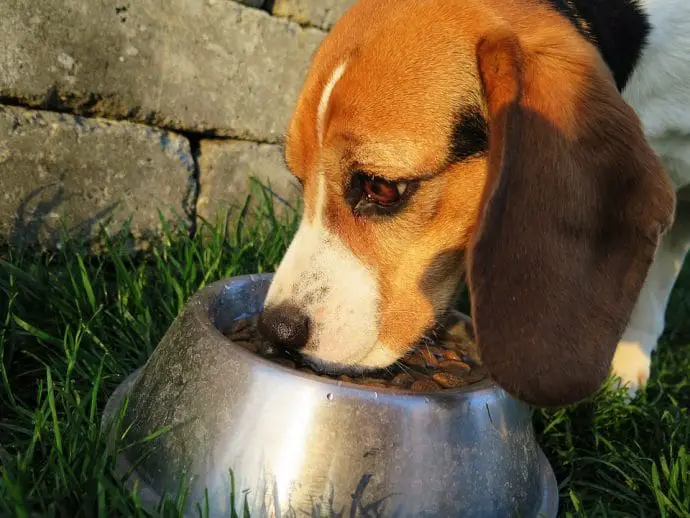What you put in your body naturally affects your quality of life. Similarly, what you feed your dogs also has a direct impact on their lives, both in the long and short term. And because wading through the overwhelming array of dog food options can be quite frustrating, we’ve compiled the best expert advice to help you choose the best food for your furry friends.
Introduce Fresh Foods
Fresh foods that are full of fiber and live enzymes such as broccoli and beet-root can drastically improve your dogs’ health. By providing your loyal companions with essential nutrition in their most effective form, human-grade quality fresh dog food can help them live a better quality of life for a longer period of time. Even though a home-cooked diet can seem like more work than the simple dry food, the small effort that you put into preparing your pup’s meals will allow you to enjoy their companionship for many more years to come.
Read the Label on the Dry Food
There’s a wide variety of kibble on the market, all claiming to be the best for your dog and while most of the commercial dog food brands are formulated with at least the minimum nutritional requirements for dogs, it’s still important to read the label before you feed it to your pups. The types and quantities of nutrients that dogs require change throughout their lives, your pets’ diet needs depending on their age, breed, health status, and weight. However, as a general rule, it’s advised that you look for a food that lists meat as the first 2 ingredients and doesn’t include grain within the first 5. Also, if the first ingredient on the label is a grain or an animal by-product, then avoid that food.
Avoid Some Common Household Foods
Even if your dog is strictly eating dry food, you can introduce small amounts of home-cooked foods such as boiled chicken into their diet, but it’s important to remember that some human foods can be very harmful to dogs. While dogs typically love the smell of chocolate, it’s extremely toxic and can even be fatal for them.
The smell of onions and garlic also tends to spark the curiosity of our furry friends, but they too must be kept away from them because they can damage their red blood cells, causing anemia. Other common household foods that you’ll need to protect your pups from including citric fruits such as lime, lemon, grapefruit, and oranges, raw yeast and dough, fatty foods such as bacon, and salty foods such as popcorn and pretzels. Grapes, raisins, avocados, and dairy products should also be avoided.
As you can see, your dogs’ diet is one of the biggest contributors to their overall wellbeing, which is why deciding what to feed your dogs isn’t something that you should do lightly. You’ll know that your pups are getting the nutrition they need if they’re producing firm, healthy stool, are fit and active, and have a healthy appetite. Otherwise, it might be time to make a change to their diet.

